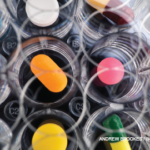 In late September, the U.S. Food & Drug Administration (FDA) approved intravenous golimumab (Simponi Aria) for the treatment of pediatric patients 2 years and older with active polyarticular juvenile idiopathic arthritis (pJIA) or active psoriatic arthritis (PsA). This treatment is a fully human anti-tumor necrosis factor-α (TNFα) biologic agent administered intravenously and the first to be approved for pediatric patients.
In late September, the U.S. Food & Drug Administration (FDA) approved intravenous golimumab (Simponi Aria) for the treatment of pediatric patients 2 years and older with active polyarticular juvenile idiopathic arthritis (pJIA) or active psoriatic arthritis (PsA). This treatment is a fully human anti-tumor necrosis factor-α (TNFα) biologic agent administered intravenously and the first to be approved for pediatric patients.
This FDA approval was based on results of the GO-VIVA phase 3 clinical trial, an open-label, single-arm, multi-center study across nine countries. The study assessed and determined the intravenous golimumab dosing for children. Participants (N=127) were 2–17 years old with JIA and polyarthritis who had active arthritis in five or more joints despite methotrexate treatment for at least two months.1
Results showed that pharmacokinetic exposure of intravenous golimumab was consistent with that seen in two pivotal phase 3 clinical trials of the treatment in adults with moderate to severe active rheumatoid arthritis (RA) and active PsA at week 52. The efficacy was generally consistent with responses in adult RA patients. Adverse reactions were also similar to those seen in studies of adults with RA and PsA.
For pediatric patients with either pJIA or PsA, intravenous golimumab follows body surface area-based dosing, which is 80 mg/m2 given as an intravenous infusion over 30 minutes at weeks 0 and 4, and every eight weeks thereafter.
Michele B. Kaufman, PharmD, BCGP, is a freelance medical writer based in New York City and a pharmacist at New York Presbyterian Lower Manhattan Hospital.
Reference



